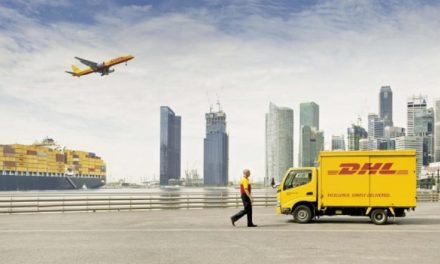
Deutsche Post and striking union set to resume talks on Friday
Deutsche Post and trade union Ver.di have agreed to return to the negotiating table on Friday after four weeks of strikes by postal workers in Germany. The union said yesterday that industrial action will continue until an agreement is made, claiming that about 32,000 workers are currently on strike across Germany.
Ver.di has been leading protests over claims that Deutsche Post broke its collective bargaining agreement with its 140,000 workers in Germany, by splitting operations into 49 regional delivery companies to avoid the terms of the national deal.
The union has been demanding a reduction in the working week to 36 hours without a corresponding loss of pay.
“We have asked Deutsche Post to continue negotiations with us on 3rd July,” said deputy chairman Andrea Kocsis yesterday.
“Our goal is to arrive at a workable outcome that is able to bring peace to the serious conflict in operation. We will continue the indefinite labour dispute until an agreement is reached.”
The last round of negotiations attempted between the two sides was on 2nd June, with strike action called on 8th June. The union said there has been a “significant” backlog of letters and parcels during the strike action since.
Deutsche Post
Deutsche Post said yesterday that it welcomed the union’s announcement that it would return to the negotiating table, and claimed the union had agreed to do so “without preconditions”.
Melanie Kreis, corporate human resources and labour director at Deutsche Post DHL Group, said it was a “positive sign” after weeks of confrontation with the union.
“We have always clearly stated that we are always available for constructive discussions, and after repeated encouragement Ver.di is finally taken up our offer to negotiate,” Kreis said.
“For us and many of our employees, it was totally incomprehensible that Ver.di cancelled negotiations unilaterally earlier in June. As a gesture of goodwill I am calling on Ver.di to let all strike action cease immediately. I hope that we can now actually talk about the issues within the collective bargaining agreement that are directly affecting our 140,000 workers.”
Deutsche Post said it was offering a more flexible working time model with extended job security provisions.
The desire for change comes as a result of “rapid” package service growth and high levels of competition in the industry. The company said the high levels of its staff wages are making it more difficult for Deutsche Post to compete against package delivery rivals.
Deutsche Post said that after restructuring into regional subsidiaries it is planning on creating 10,000 new jobs by 2020.
“This new structure is essential in order to safeguard employment in the current above-average conditions for those already employed at Deutsche Post today,” said Kreis.












